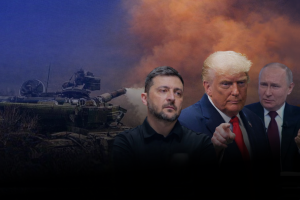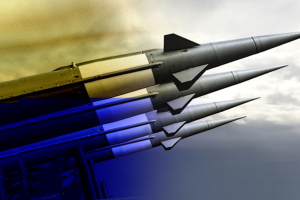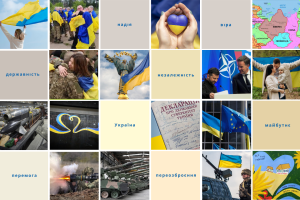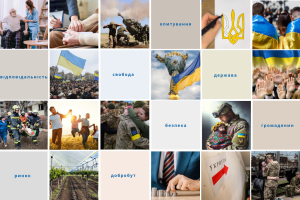METHODOLOGY
The face-to-face survey was conducted by Ilko Kucheriv Democratic Initiatives Foundation in collaboration with Center for Political Sociology on June 5–15, 2023.
In total, 2,001 respondents aged 18 or older took part in the survey in Vinnytsia, Volyn, Dnipropetrovsk, Zhytomyr, Zakarpattia, Zaporizhzhia, Ivano-Frankivsk, Kyiv, Kirovohrad, Lviv, Mykolaiiv, Odesa, Poltava, Rivne, Sumy, Ternopil, Kharkiv, Kherson, Khmelnytskyi, Cherkasy, Chernihiv, and Chernivtsi regions, and the city of Kyiv (in Zaporizhzhia, Kharkiv, and Kherson regions – only in the territories controlled by Ukraine and not affected by hostilities).
The sampling technique used in the survey is multistage, involving a random selection of localities at the initial stages and a quota-based selection of respondents at the final stage. The random selection represents the demographic structure of the adult population in the territories covered by the survey as of the beginning of 2022.
The maximum sample random error does not exceed 2.3%.
At the same time, it is necessary to consider systematic deviations in the sample caused by the forced migration of millions of citizens due to the Russian-Ukrainian war.
MACROREGION COMPOSITION:
- West – Volyn, Zakarpattia, Ivano-Frankivsk, Lviv, Rivne, Ternopil, and Chernivtsi regions;
- Center – Vinnytsia, Zhytomyr, Kyiv, Kirovohrad, Poltava, Sumy, Khmelnytskyi, Cherkasy, and Chernihiv regions, and the city of Kyiv;
- South – Zaporizhzhia, Mykolaiiv, Kherson, and Odesa regions; and
- East – Dnipropetrovsk and Kharkiv regions.
KEY FINDINGS
- Reflecting on the future of their country, Ukrainians mostly feel hope (59%), anxiety (42%), and optimism (33%). During the full-scale war, optimism and hope for a better future for the country reached one of the highest levels since the Revolution of Dignity. At the same time, the increased negative emotions and lower optimism during June 2023 cause concerns, as the negative emotions about the country's future are related to the respondents' willingness to agree to a quick ending of the war at any price. The increase in the level of negative emotions could be attributed to the demolition of Kakhovka HPP, which took place during the survey, however, additional monitoring is needed to prove this hypothesis.
- According to the polled Ukrainians, the main threats in the nearest future, both at the level of separate households and the state level, will be casualties as a result of hostilities, price increase for necessary goods, and loss of income.
- Nevertheless, more than half of respondents (53%) are prepared to bear the consequences of the war for the sake of eventual victory. Around 30% of Ukrainians wish the war to end as soon as possible at any circumstances, yet only 8% of respondents are actually willing to make at least any compromises for a swift ending of the war.
- According to the survey, part of the citizens want the war to end quickly due to the fear of grave losses, a belief that Russia possesses more resources than Ukraine, and doubts about the duration of support from the West.
- Meanwhile, the absolute majority of Ukrainians (56%) believe that the West will support Ukraine for a long time. Furthermore, more than half of them are not willing to stop the armed defense if such military or economic support ceases.
- As of mid-June 2023, over three quarters of Ukrainians (77%) were positive about the victory of Ukraine, and another 16% rather believed in the victory. Thus, faith in the victory remains practically at the same level compared to August 2022. The high level of faith in the victory is based on the fact that citizens realize the grave threat of annihilation of the entire nation in case of a military defeat. The share of respondents who do not believe in the victory is insufficient to investigate the reasons for such despondency.
- Despite the common belief in the victory, the public opinion varies significantly when it comes to the timing. Thus, almost one third of respondents (31%) expect the victory by the end of 2023. Another third (32%) expect the victory in one to two years (by the end of 2025). About 13% of Ukrainians think that at least three to five years will pass until the victory. Over 22% of Ukrainians could not provide a definite viewpoint on the timeframe for achieving victory. It can be assumed that in the absence of notable achievements on the front line, Ukrainians may anticipate a prolonged war, whereas battlefield successes will, on the contrary, lead to an increase in the number of people who believe in an imminent victory.
- The absolute majority of respondents (53%) would rather agree to carry on the war if it is a prerequisite for victory, even despite the expected deterioration of the financial and security situation in the country in general and for their families in particular.
- The majority of Ukrainians (68%) associate the victory with a complete defeat of Russia, leading either to the liberation of all the occupied territories (43%) or the collapse of Russia (26%). After the sixteen months of war, there is a more tangible trend towards a vaguer majority seeking to restore the 1991 borders and a rise in the share of individuals with radical beliefs, supporting the idea of expanding the hostilities into the Russian territory.
- 70% of Ukrainians consider it crucial for all the territories to be liberated from the enemy to call it a victory in the war. It proves that there are no prerequisites for the society to support any peace plans or initiatives that would mean territorial compromises with Russia. Important victory factors include bringing back all Ukrainian captives and deported individuals (60%) and prosecuting Russian military criminals (51%). Saving fellow citizens and punishment of those responsible for killings and tortures are vital in fostering the unity and resilience of the Ukrainian nation amid the war.
- Ukrainians (55%) think that the high current and future death toll during the war will demand the restoration of peace on the terms determined by Ukraine. Only 15% of citizens share the opinion that significant losses are the ground for initiating negotiations to end the war.
- For more than a half of respondents (51%), the only possible scenario is the war waged until the final victory, without any compromises or concessions. Although the Ukrainians are sensitive to the growth in the number of victims, the majority are still prepared for this or other adverse scenarios, willing to keep waging the war, and not to agree to peace talks with Russia.
- The support of the so-called “peace at any price” remains quite low (6%). The respondents who support any compromises to stop the war feel despondent about the country's ability to improve the situation if the war goes on.
- The majority of respondents (58%) claim they will support the principles and terms of ending the war declared by the President of Ukraine. It manifests a trend toward stronger trust in the President of Ukraine during the full-scale war. This trend will foster the social stability and unity of the society and the higher military and political authorities in withstanding the aggressor to reach peace on the terms acceptable for Ukraine.
- A mere 10% of Ukrainians believe that even now it is possible to engage in negotiations with Russia to bring an end to the war. People who share this idea are more inclined to make compromises with the aggressor. Although the absolute majority are still not willing to abandon the territories to the aggressor, the refusal of Ukraine to join NATO may be an acceptable compromise for this group.
- When it comes to the South macroregion, which is distinguished among the others by its willingness to negotiate with the aggressor, there is a certain age-related trend: as the respondents' age increases, there is a tangible increase in the share of those “ready to negotiate even now.”
- The idea of territorial concessions is not popular and is supported by only a small minority of Ukrainians (6%). On average, no macroregion revealed a dominant share of those supporting territorial compromises compared to others. The factor of loss sensitivity does not radically increase the willingness of people to make territorial compromises with the aggressor.
- Only about 14% of respondents are prepared for compromises in the form of abandoning the accession to NATO or the EU. The residents of the South macroregion are distinguished by their higher willingness to abandon the accession of Ukraine to NATO or the EU. However, one should keep in mind that this stance is rather attributable to the senior citizens in these regions. Such factors as “war fatigue” or sensitivity to losses do not radically impact the willingness to pivot from Ukraine’s accession to NATO or the EU.
- Ukrainians show they are not willing to compromise with the aggressor. Coupled with the trust in the President and his “peace plan” principles, this signifies the cohesion and determination of both the society and military political authorities to persist in the war until peace is attained on Ukraine's terms.
- On the other hand, the offers of external political actors to negotiate with the aggressor on unfavorable terms will be supported by neither the society nor the military and political authorities of Ukraine. If Ukraine is forced to unfavorable peace by reducing financial/military support, it is most likely that the military and political authorities of Ukraine will maintain the current policy of securing national sovereignty, which will find a wider support among the citizens. So, the most rational approach for the partners would be to continue supporting Ukraine to defeat Russia.
- 54% of Ukraine's population choose accession to NATO among the possible security guarantees for the country. The support of alternatives is as follows: strategic defense cooperation treaties with several NATO members (16%), neutral status secured by international guarantees of Ukraine’s sovereignty (10%), and relying solely on one’s own efforts and military industry without any international guarantees (8%). About 12% of respondents could not provide a definitive answer. It can be asserted that accession to NATO is appealing to Ukrainians primarily as a means of protection against the Russian aggression.
- Among the respondents, 72% of Ukrainians who do not choose accession to NATO as the best option to guarantee security for Ukraine are not willing to abandon the idea of joining NATO as a compromise with Russia.
- The absolute majority of Ukrainians (78%) share the idea that all Russians are accountable for the aggression against Ukraine. The percentage of citizens who disagree with this statement is the highest in the southern regions (30%). They say that Russian is their native language (37%) or their everyday language (32%). Since the research has not revealed any connections between the age of such respondents and their attitude towards Russians, one may claim that positive feelings towards Russians are formed by Russian-speaking information sources, Russian-speaking experts and commentators in Ukrainian media space.
- The majority of Ukrainians (57%) want to punish everyone who was directly involved in planning, approving, arranging, and committing the war crimes. Even now, there is a significant share of citizens (36%) who have the most radical approach to punishing Russia: they want to prosecute each and every Russian.
- Despite the massive and merciless war crimes committed by Russians, the majority of Ukrainians (68%) think that the prosecution and punishment of the criminals should be subject to the national and international laws. At the same time, a quarter (25%) of respondents are positive that criminals like these should be punished out of court.
- Almost 16% of the polled Ukrainians all over the country said they had witnessed war crimes committed by Russians, and another 5% said they might have witnessed such actions. At the same time, only half (50%) of the self-proclaimed witnesses are willing to act as witnesses during the investigations and international court proceedings. One may assume that such a low level of readiness to cooperate with judicial authorities stems from the unwillingness to constantly reminisce about these crimes and the uncertainty that this sacrifice will help punish the criminals.
- Ukrainians (95%) expect that the state will insist on Russia compensating for the losses caused during the war, yet less than half of respondents (40%) believe that reparations will actually be paid.
- The absolute majority of Ukrainians (89%) would like to live in Ukraine in the future. It is crucial to ensure that citizens who intend to stay in Ukraine in the future are not motivated to change their plans.
- Regarding the state's priorities for post-war recovery, the expectations of citizens are quite foreseeable: economic revival, restoration of the power sector and other civil infrastructure, housing renovation, and security guarantees for the population. One of the priorities that deserves attention and can impact citizens' motivation to build their future in Ukraine is suppressing government corruption, which was mentioned by respondents most frequently. Over the last several months, corruption scandals have increasingly come to light. Amid the full-scale war, it may adversely impact the unity of the Ukrainian society and the country’s military and political authorities in fighting the aggressor, which will definitely not cater to the demands of the civil society for suppressing government corruption. As unmet expectations build up, there is a risk that over time, citizens may wish to pursue their future outside Ukraine.
RESEARCH FINDINGS
PERCEPTION OF THE WAR BY THE SOCIETY
The key emotions of Ukrainians thinking about the country's future are hope (59%), anxiety (42%), and optimism (33%). Compared to December 2022, there has been an increase in the population's susceptibility to negative emotions such as anxiety (+18%), fear (+14%), and confusion (+10%), while the share of citizens who are optimistic about the future of Ukraine has declined (-7%).
Starting from the survey conducted in August through December 2022, fear and anxiety among the population exhibited a tendency to decrease. A sharp prevalence of these emotions during June 2023 along with heightened confusion and lower optimism may stem from the population's emotional outburst after the demolition of Kakhovka HPP on June 6. So, over time, the spreading of negative forecasts regarding Ukraine's future is expected to decline.
Compared to men, women more frequently reported fear (+16%), anxiety (+12%), and confusion (+9%). The lesser popularity of negative scenarios for Ukraine's future among men is a positive factor in terms of mobilization to the Ukrainian Armed Forces. At the same time, it should be taken into account that men might have deliberately avoided sharing their negative emotions during the survey, fearing that it could affect their masculinity image in front of the interviewer.
Economically active population aged 18 to 59 are more optimistic (+7%) and confident (+7%) in the country's future compared to senior citizens.
Read the full text of the survey on the website of the Civil Network OPORA








